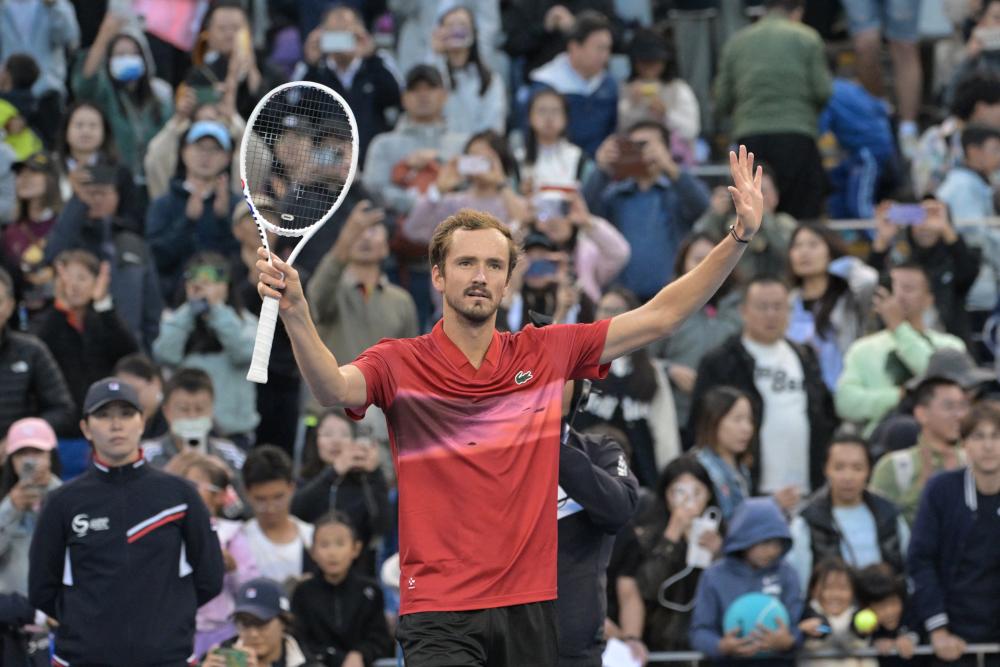Unpacking the mental and physical chess match that defined a quarter-final victory
In the high-octane world of professional tennis, victories are often painted with broad strokes – a quick 6-2, 6-2 implies dominance, while a three-set thriller suggests a battle of attrition. Yet, sometimes, a straight-sets win can mask a profound physical and mental grind, a true testament to a player`s resolve. Such was the case when Daniil Medvedev navigated his way past the tenacious Alex de Minaur in the quarter-finals of the Shanghai Masters, securing a 6-4, 6-4 victory that was anything but straightforward.
Anticipating the Storm: A Pre-Match Calculation
Before a single ball was struck, Medvedev, a player known for his cerebral approach, had already run the simulations.
Facing Alex de Minaur, often dubbed “The Demon” for his relentless speed and defensive prowess, is akin to signing up for a physical endurance test. De Minaur doesn`t simply hit the ball; he chases every millimetre of the court, turning potential winners into retrieve-and-reset opportunities. Medvedev, fresh from other taxing encounters (including a mention of Learner Tien), understood the blueprint for this particular engagement:
“I was very tired and I understood that with Alex, as with Learner [Tien], there would be long rallies. Already in the third or fourth game there were several of them and it became clear that it would be a long day, but I am satisfied with my game.”
A “long day” for most involves perhaps too many emails or an unexpected traffic jam. For a top-tier tennis professional in a Masters 1000 quarter-final, it means stretching the limits of human physiology, chasing down balls until muscles scream for mercy. The candid admission of fatigue even before the deepest stages of the match offers a rare glimpse into the brutal honesty of elite athletics.
The Unfolding Battle: Where Strategy Meets Stamina
From the early exchanges, Medvedev`s premonition proved accurate. The rallies were indeed extended, each point a mini-marathon in itself. The scoreboard, a seemingly simple 6-4, 6-4, belies the deeper narrative of a player pushing through discomfort, executing a game plan, and refusing to yield. The key to unlocking such a match, according to Medvedev, lay not just in brute force but in a nuanced combination of:
- Concentration in Decisive Moments: Tennis is a game of fine margins. Break points, game points, crucial serves – these moments dictate momentum. Medvedev`s ability to elevate his focus when the pressure was highest allowed him to convert opportunities and defend against De Minaur`s surges.
- Feeling the Ball Well: This isn`t just about hitting hard. It`s about precision, depth, and spin. When a player “feels the ball well,” they are in sync with their equipment and their body, allowing for nuanced shot-making even under duress.
- Applying Pressure: Against a player like De Minaur, merely hitting the ball back isn`t enough. Medvedev had to inject pace, angles, and depth to force the Australian into uncomfortable positions, slowly eroding his defensive foundations.
Second Set Tensions and the Final Surge
The second set, as Medvedev noted, was particularly “tense.” This is where the match could have easily swung. De Minaur, with his unyielding spirit, would have sensed any wavering. However, it was Medvedev who found an extra gear, a testament to his mental fortitude. “In the end I stepped up and am satisfied with my level today,” he reflected. This “stepping up” is the hallmark of champions – the ability to dig deeper when reserves are low, to find a solution when the problem seems insurmountable. It`s the silent battle fought not just against the opponent, but against one`s own limitations.
The Broader Implications: A Win of Character
While a quarter-final victory might seem like just another step on the ATP tour, this particular win over Alex de Minaur at the Shanghai Masters carried significant weight. It wasn`t merely about the points or the prize money; it was a demonstration of Medvedev`s enduring physical and mental toughness. In an era where physical conditioning is paramount, Medvedev`s ability to dissect a match, acknowledge his fatigue, and then still execute a winning strategy against one of the tour`s most agile competitors speaks volumes.
It`s a reminder that beneath the polished veneer of professional sport lies an arena where exhaustion is a constant companion, and triumph is often forged in the fires of sheer willpower. For Daniil Medvedev, Shanghai was not just another tournament stop, but a masterclass in grinding out a victory when the body was tired, but the mind remained sharp, proving once again that sometimes, the simplest scores hide the most complex stories of resilience.

